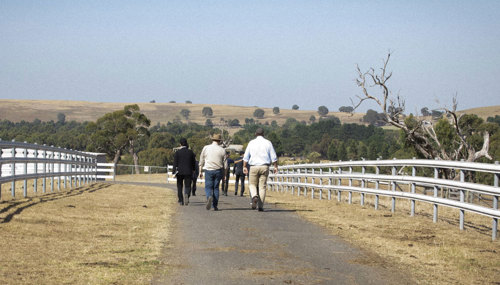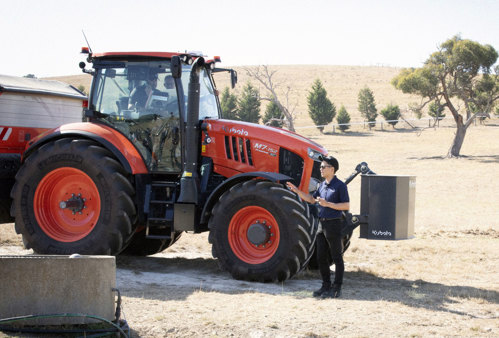Kansai Economic Federation (KEF) delegation from Japan visit Northern Lodge for new Kubota Machinery

On Friday 8 March, Melbourne Polytechnic played host to 25 members of the Kansai Economic Federation (KEF) delegation from Japan.
The purpose of their visit to Australia was to see and learn about Japanese products and innovation being used in Australia.
KEF is comprised of business leaders from companies based in the Kansai-Osaka region, including Kubota Corporation (Kubota Australia/Japan), a multinational supplier of agricultural equipment and technology.
Kubota Australia chose our Eden Park campus to demonstrate to KEF members how Kubota machinery could be used with soil scanning technology to measure the salinity of soil in different regions of a paddock.

Northern Lodge at Eden Park
This information can be used for precision farming to ensure that suitable crops are planted in areas with compatible soil salinity. This innovative, sustainable practice reduces the need for fertilisers which can be harmful to the environment.
Gordon Williamson, Melbourne Polytechnic lead teacher in agriculture, presented to KEP
members about agriculture and land management in Australia. Members were particularly interested in the challenges faced with climate change and moves towards more sustainable farming practices.
Melbourne Polytechnic has a long-standing relationship with Kubota Australia (KA) and for many years has hired or purchased equipment from KA, including the recent purchase of equipment as part of the Agriculture TAFE Training Fund project (ATTF).

Kubota Tractor demonstration at Northern Lodge at Eden Park
About the Kansai Economic Federation
Kansai Economic Federation (KEF) was established in 1946 in Japan to stimulate post-war economic growth and recovery.
Today KEF is focused on economic growth through innovation, with an increasing interest in the environment and energy.
They conduct research studies that anticipate future trends, make policy proposals, and take practical actions based on the study results.
KEF is comprised of approximately 1,300 businesses, organisations, educational corporations and other entities that pursue economic activities mainly in the Kansai-Osaka region.
Agriculture
Melbourne Polytechnic’s Agriculture and Conservation qualifications offer a broad range of specialisations including Conservation, Agronomy, Aquaculture, and Viticulture and Winemaking.